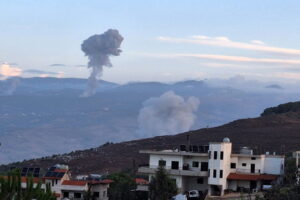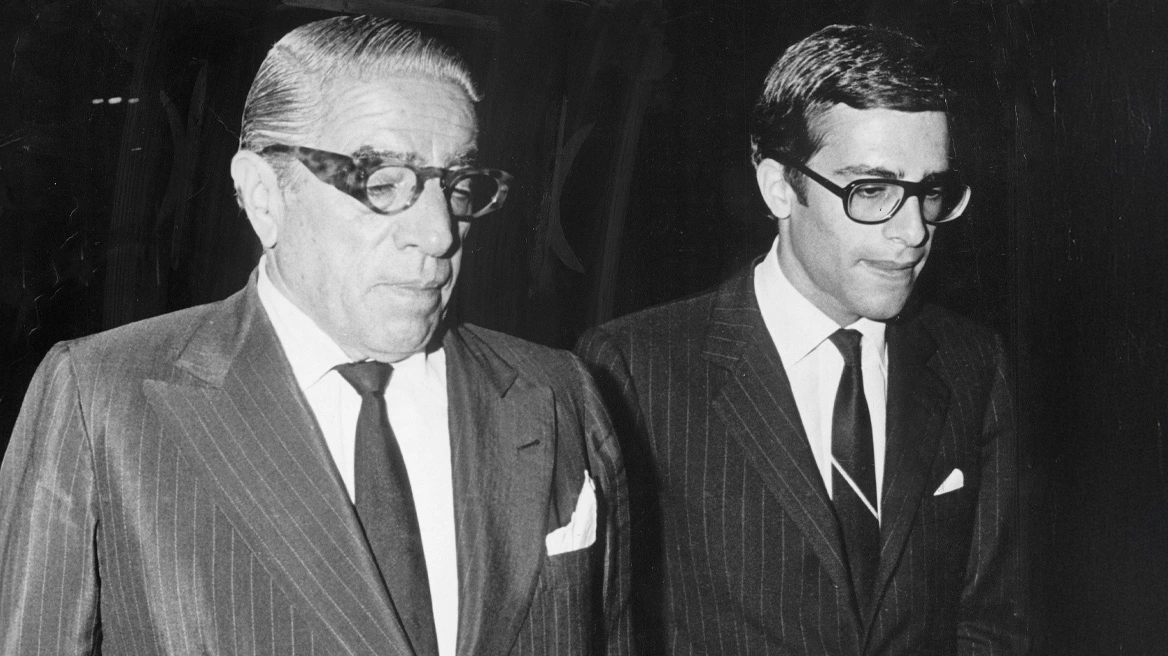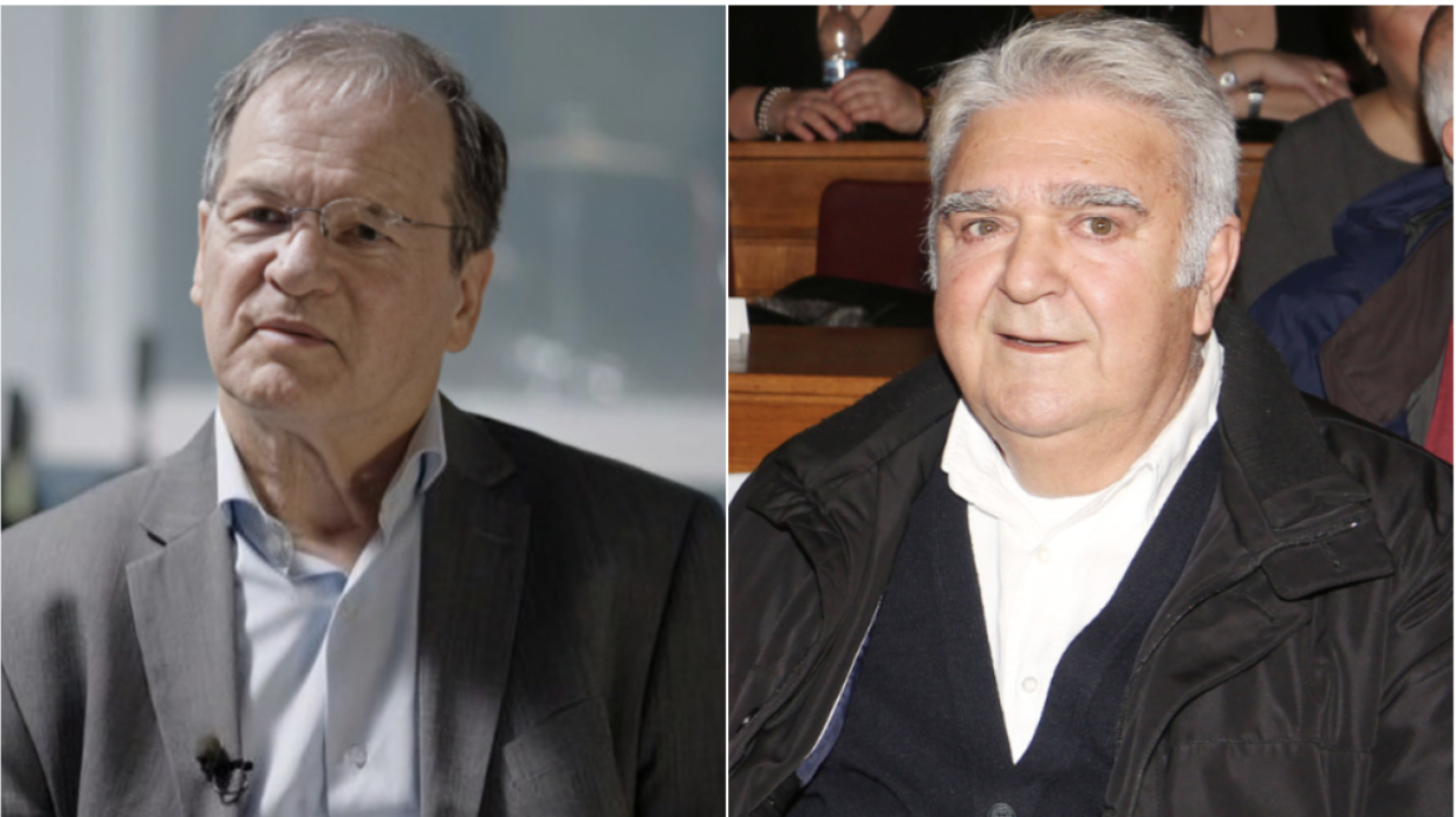Intense aerial bombardment by Israeli armed forces against Hezbollah killed at least 492 people in Lebanon on Monday, including 35 children, according to authorities in the country, which experienced its bloodiest day in nearly a year of border firefights alongside the war in the Gaza Strip.
UN Secretary General Antonio Guterres is “very seriously concerned” about the number of civilian casualties in southern and eastern Lebanon, hammered by Israeli armed forces, his spokesman said on Monday, as the international community increasingly fears that the escalating conflict between Israel and the powerful Iranian-backed Lebanese Hezbollah movement will lead to regional conflagration.
In New York, where the UN General Assembly is being held, French Foreign Minister Jean-Noel Barrot announced yesterday that Paris was calling for an emergency “convening of the Security Council on Lebanon within the week.”
“We are on the brink of total war,” EU diplomacy chief Giuseppe Borel warned for his part.
The death toll did not stop getting heavier as the hours passed yesterday. “The aerial bombardment martyred 492 people, including 35 children and 58 women, and injured 1,645 others,” the Lebanese health ministry said in the evening.
On the other side, the Israeli military said a “large number” of Hezbollah members were killed.
In total, “some 1,600” “terrorist” positions in southern Lebanon and the Bekaa Valley were hit yesterday in the operation dubbed “Northern Arrows”, it explained late last night, including “hundreds of targets” hit “in the last few hours.”
In a video yesterday, Israeli Prime Minister Benjamin Netanyahu called on Lebanese citizens to “move away from dangerous zones” until “the operation is over.”
On the other hand, Lebanese Prime Minister Najib Mikati denounced a “plan of destruction” in his country, where schools will be closed today.
It was a “disaster, a massacre,” said Jamal Badran, a doctor at a hospital in Nabataja (south). “The shelling is not stopping, they are shelling us even while we are evacuating wounded people,” he added.
Thousands of families fled the areas being shelled, according to the health ministry.
Displaced people flooded the capital and Saida, where many took refuge in reception centres, photographers noted.
At a school in Saida, Hassan Banjak explained that he had not decided to leave his home “since the beginning of the war and the Israeli enemy’s bombing” in October 2023, but yesterday, “when the bombing intensified and came closer to us, the children were afraid and we decided to leave.”
Earlier last night, the Israeli armed forces said 1,300 strikes in roughly 24 hours. Hezbollah, for its part, spoke of new rocket launches, as it has for almost a year since October 8, the day after Israel and Hamas’ war broke out in the Gaza Strip.
The Israeli military also spoke of a “targeted strike” in Beirut, targeting, according to a French news agency source close to Hezbollah, the head of the southern front of the movement’s military arm, who was quick to assure that the militant was “well” and “in a safe location.”
In one day, Israeli armed forces “neutralized tens of thousands of rockets and ammunition” from the Lebanese faction, assured Defense Minister Yoav Galad, for whom Hezbollah experienced its “most difficult week since its creation” in 1982.
Netanyahu said his army would radically change the “balance of forces” on the border to allow the tens of thousands of displaced Israelis living in the north to return safely, during a meeting with officials in Tel Aviv, according to his office.
Hezbollah, for its part, spoke of strikes against the Israeli army’s “main depots” in the north as well as a camp.
Early last night sirens sounded in Haifa, a major port in the northern part of the Israeli territory, the outskirts of which were hit for the first time by Hezbollah rockets the day before yesterday.
“I am not afraid for myself but for my three children,” said Ofer Levi, a 56-year-old customs officer who lives in Kiryat Mochkin, in northern Israel. “No country can live like this,” he added.
Hostilities between Israel and Hezbollah – which vows to keep hitting Israel “until the offensive in Gaza ends” – escalated dramatically after a wave of explosions of the movement’s communication devices, attributed to Israel, killed 39 people, according to Lebanese authorities, on Sept. 17 and 18.
On Friday, an Israeli bombing of a southern Beirut suburb killed at least 45 people, including 16 members of a Hezbollah elite unit, including its commander Ibrahim Akil.
Ahead of France, Egypt also called yesterday for an urgent UN Security Council meeting to discuss how to end “the dangerous Israeli escalation”, warning, like Jordan, against the threat of “generalised regional war”.
A State Department official assured that the US would present “solid ideas” for de-escalation, while suggesting that Washington opposed Israel’s ground invasion of southern Lebanon, the idea of “de-escalation through escalation”, discounting that it had not had the intended effect.
Iraq called for an “urgent meeting” of Arab states on the sidelines of the UN General Assembly to try to “stop” Israel, which Turkish President Recep Tayyip Erdogan accused of being bent on “driving the whole region into chaos.”
Iranian President Massoud Pezzekian also accused Israel, a sworn enemy of Tehran, of wanting to “widen” the war.
The US, Israel’s key international ally, on Saturday urged its nationals to leave Lebanon urgently and also announced it was deploying “a small number” of additional troops to the Middle East. US President Joe Biden assured that he was “working” to achieve a “de-escalation.”
China also urged its own nationals to leave Israel and Lebanon “as soon as possible”, while the Kremlin said it was watching developments with concern.
The day before Sunday, Mr Guterres said he feared Lebanon would turn into a second Gaza.
In the nearly a year of hostilities between Israel and Hezbollah, hundreds of people have been killed in Lebanon, most of them militants, as well as many civilians, and dozens more in Israel and the occupied Golan Heights.
The war in the Gaza Strip erupted on October 7, sparked by an unprecedented Hamas assault on southern Israel, during which 1,205 people, mostly civilians, were killed on the Israeli side, according to a French News Agency count based on official Israeli data, which includes hostages killed while being held in the Palestinian enclave.
Of the 251 people kidnapped that day, 97 remain in the hands of Palestinian militants in the Gaza Strip, though 33 are presumed dead, according to the Israeli military.
In retaliation, the Israeli government has vowed to wipe out Hamas, in power in the enclave since 2007, which it labels a terrorist organization, as have the US and the EU.
At least 41,455 Palestinians, the majority of them civilians, have since died in the large-scale Israeli military retaliatory operations, according to the Hamas health ministry, whose figures are considered reliable by the UN. The small Palestinian enclave under siege is facing a humanitarian disaster.
Ask me anything
Explore related questions





